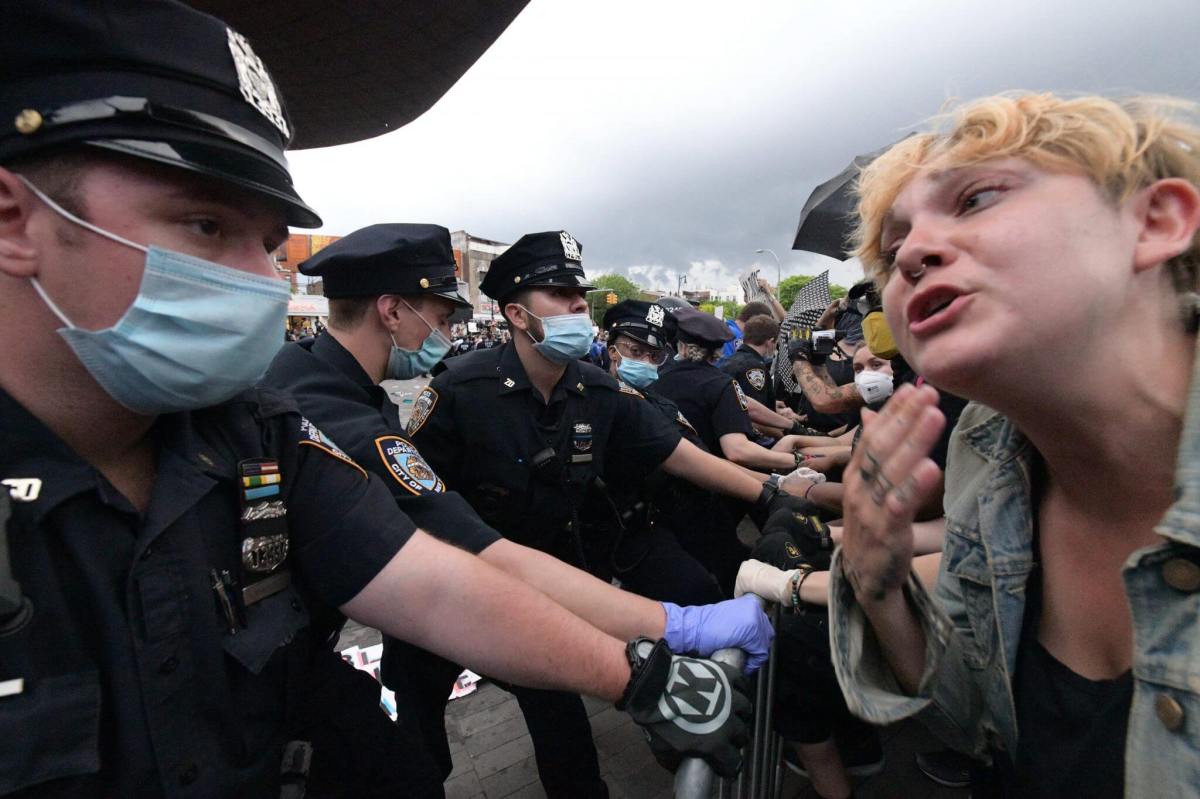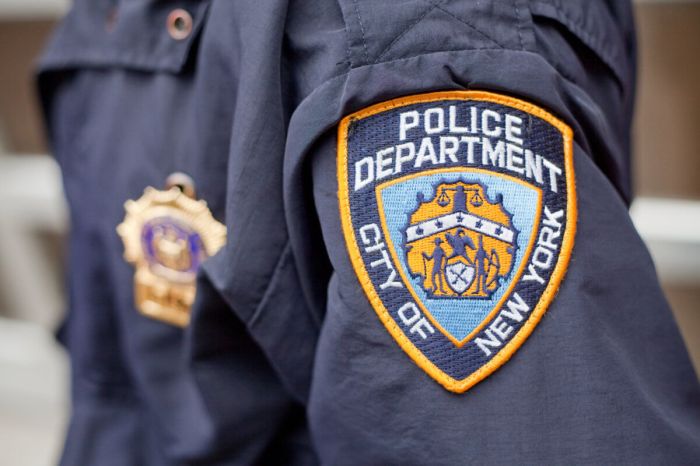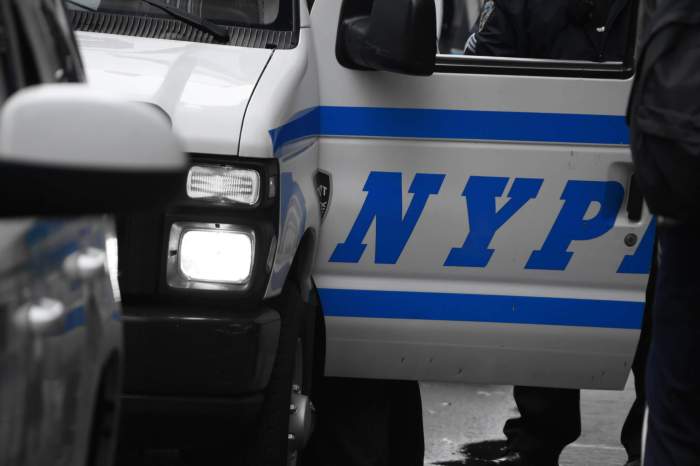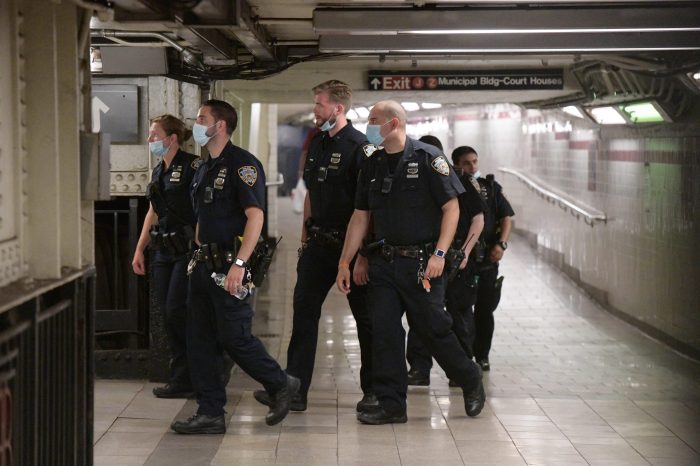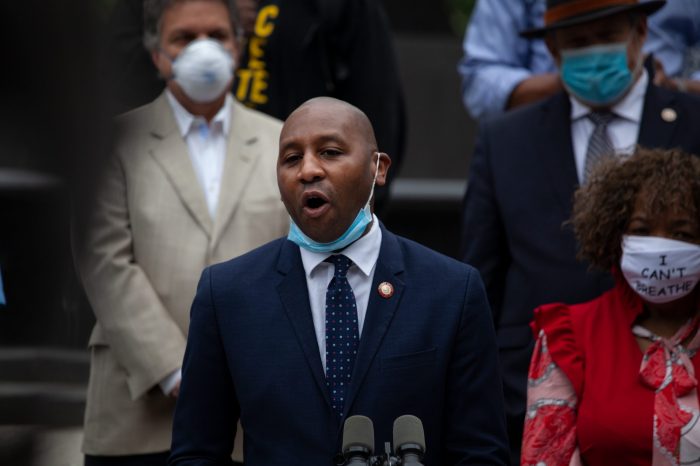The NYPD has only disciplined 12% of the 145 officers against whom the Civilian Complaint Review Board has substantiated allegations of police misconduct during the 2020 George Floyd protests, the panel reported Wednesday.
The CCRB, which is charged with civilian oversight of the nation’s largest police force, said at its May monthly board meeting that it had substantiated 87 complaints against the 145 officers, but that the NYPD has already failed to follow the disciplinary recommendations in most of the complaints the department has already closed.
Only 18 officers have faced any discipline so far for their actions during the protests, despite numerous viral videos showing officers violently suppressing demonstrations, with some going so far as to drive their squad cars into a crowd of protesters in Brooklyn, “kettle” protesters into tight locations, arrest legal observers and journalists, and many covering their badge numbers.
The badge covering made it hard to identify many officers committing misconduct on tape, the board says.
“The video recording of George Floyd being killed sparked outrage around the world leading to protests in over 60 countries,” said interim CCRB Chair Arva Rice at the meeting, noting that the statute of limitations has almost expired nearly two years after Floyd’s death at the hands of Minneapolis police officers. “While thousands of New Yorkers took to the streets to protest against police brutality, hundreds of people experienced fresh instances of police misconduct.”
In seven of the cases where discipline was meted out, the NYPD “deviated” from the CCRB’s recommendations. Although the CCRB can investigate misconduct and recommend discipline, its recommendations are just that, and the NYPD can and usually does ignore them.
The CCRB recommended charges, its highest level of discipline (which can include anything from loss of vacation days all the way to termination) for 88 of the 145 officers, with “command discipline” recommended for the rest of those with substantiated complaints, according to the CCRB’s “protest data snapshot.” The snapshot lists the officers with substantiated complaints, though it does not say what act each officer is accused of.
In a statement, an NYPD spokesperson said that the department is cooperating with CCRB investigations by providing body cam footage and written records, and said it would follow the “disciplinary matrix” introduced under former Commissioner Dermot Shea as a “framework” for reprimanding officers.
“Police officers are entitled to due process and may choose to go forward with an administrative trial where evidence must be presented and may be challenged,” the police spokesperson said. “The NYPD has made significant strides and continues to work toward making our discipline processes transparent. Like any citizen, police officers should be afforded a presumption of innocence until and unless proven guilty.”
The board’s executive director, John Darsh, also confirmed last week’s Politico report that Police Commissioner Keechant Sewell has rejected a plea by the Police Benevolent Association to nuke disciplinary proceedings for Wayne Isaacs, the officer who killed Delrawn Small in East New York in 2016.
Isaacs had previously been cleared of murder and manslaughter charges by a Brooklyn jury and of any wrongdoing through an internal NYPD investigation, but his family is still seeking a disciplinary trial prosecuted by the CCRB.



